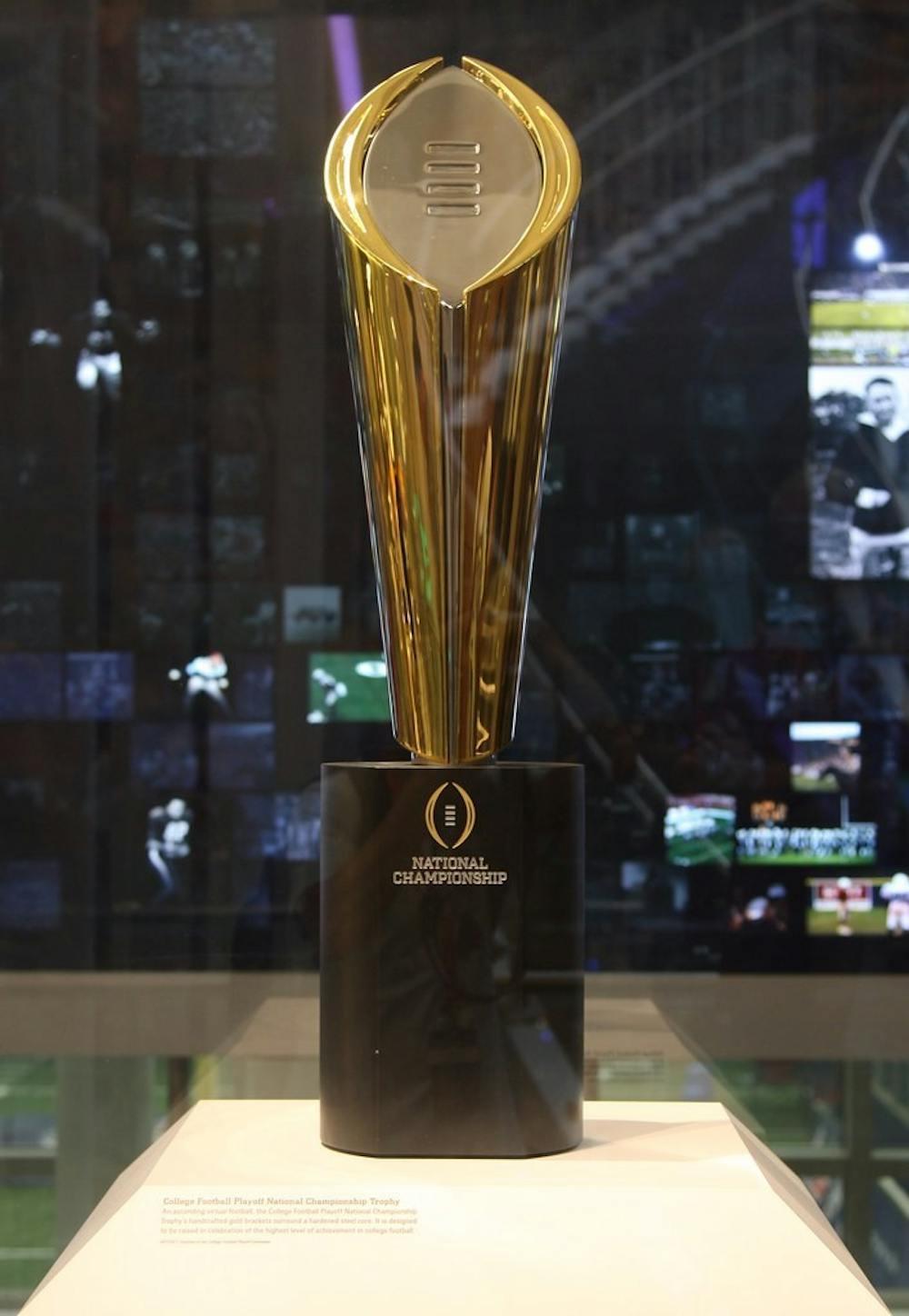Grayson Joslin is a sophomore journalism and political science major and writes for The Daily News. His views do not necessarily reflect those of the newspaper.
One of my favorite video games growing up were the many titles of the “NCAA Football” series.
On my Xbox 360, young me would play Dynasty mode, ensuring that Ball State would become a powerhouse in college football and avenge our many bowl game losses up to that point.
When I wasn’t doing that, I was also creating some of the craziest conferences imaginable. Washington State in the Atlantic Coast Conference? Got it. The University of Texas at San Antonio in the Southeastern Conference? Why not! Ball State in the Big Ten? Of course.
I had often thought that my wacky, all-star creations of conferences would remain a video game fantasy for me and many other college football fanatics. The last few months, however, have shown the era of college athletics mega-conferences could be upon us.
In July 2021, the Southeastern Conference (SEC) announced the University of Oklahoma and the University of Texas, two major college sports powerhouses and rivals, had accepted invitations to join the major conference, with their membership beginning with the 2025-26 academic year.
The conference that Oklahoma and Texas will be leaving, the Big 12 Conference, soon found more schools to join their ranks. In September 2021, the conference announced that Brigham Young University, the University of Central Florida, the University of Cincinnati and the University of Houston would be joining the conference in 2023.
These announcements, however, pale in comparison to what the Big Ten Conference, one of the most prestigious college conferences, would announce less than a year later.
On June 30, 2022, it was announced that the University of California Los Angeles (UCLA) and the University of Southern California (USC), two major college programs with a combined 230 National Championships between them, would join the Big Ten Conference in 2024. The historically Midwestern conference are set to have member schools stretching from East coast to West coast.
This move could be a blueprint for another seismic shift in the college landscape, one that abandons many of the guiding principles of college athletics.
When money talks, everybody listens, and that statement remains true when it is applied to college athletics. Where does this money come from?
A big source is television deals, and the Big Ten conference is currently entertaining multi-billion dollar offers from CBS, FOX and Amazon, among others. Add that to the fact that the conference UCLA and USC will be leaving, the Pac-12 Conference, has the lowest per-school distribution among the Power Five schools at a hair underneath $20 million dollars, while the Big Ten gave $46 million dollars per school last year.
This move could allow the wealthy schools and athletic conferences to become even wealthier, and shut down opportunities for the underdog Group of Five conferences to expand their reach and get their share of the wealth.
The situation of two schools with $15 billion endowments joining a valuable conference where each school has an, on average, $5.5 billion endowments reminds me of the ballad of the European Super League.
In April 2021, the Super League was announced, with a lineup of a majority of the most valuable soccer teams in the world, such as Real Madrid, Manchester United, Inter Milan and Liverpool, with the prize money from these games slated to be over ten billion Euros. Claims of elitism followed as only the most expensive and most competitive clubs would be in this league. By the end of that same April, the Super League dissolved without even playing a game.
This move by the Big Ten could allow for money to reign supreme in college sports, not fan interests. With that, this means that many traditions could come to an end if college sports head toward the mega-conference route.
College sports pride themselves on tradition and community. This sense of tradition and community will be at risk when colleges that have been part of the same conference for over a century leave to pursue more money.
Loyalty to the community, the conference and the various rivalries and to the tradition of college sports is going by the wayside with this current wave of conference realignment. Rivalries that have existed for generations, such as Oklahoma-Oklahoma State, Stanford-USC, and Texas-Texas A&M are at risk of losing their prestige and honor due to these teams not playing in the same conference in the coming years.
The most sacred things in college sports are not sacred anymore when money gets involved.
The current crop of realignment doesn't look to be over anytime soon. Several Atlantic Coast Conference (ACC) schools, such as North Carolina and Clemson, are looking to jump ship to the much more profitable SEC, while the ACC and Pac-12 could be combining their ranks. Many cornerstones of college athletics will be the way of the dodo bird if all of these moves are successful, and that is a shame.
The ongoing creation of these “super-conferences” is not furthering tradition or pride in college sports; it is only fueled by greed and the thirst for boundless wealth.
Many college programs are ditching their values and traditions to chase the best TV deals possible and the best name, image, and likeness deals for five-star recruits. Modesty is extinct in college sports, and the chasing of the best deal possible will ensure college sports lose the tradition that makes them so enjoyable to begin with.
Contact Grayson Joslin with comments at Grayson.joslin@bsu.edu or on Twitter @GraysonMJoslin.





